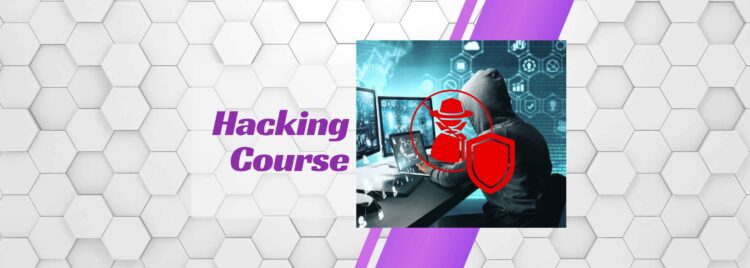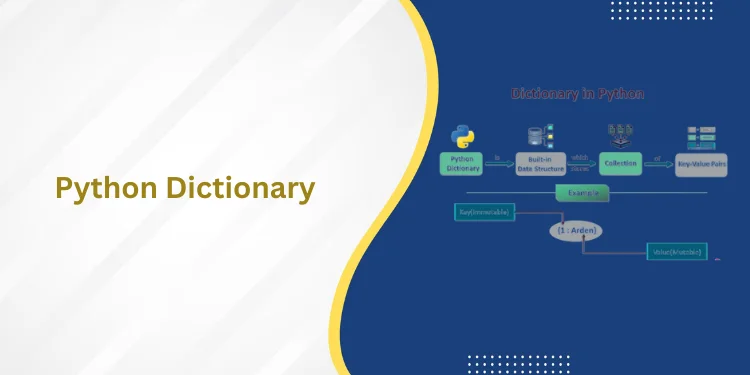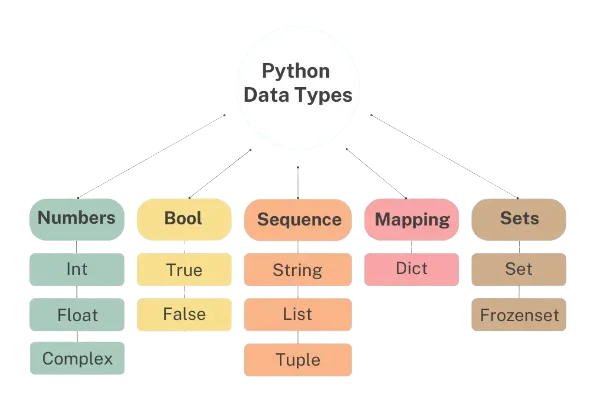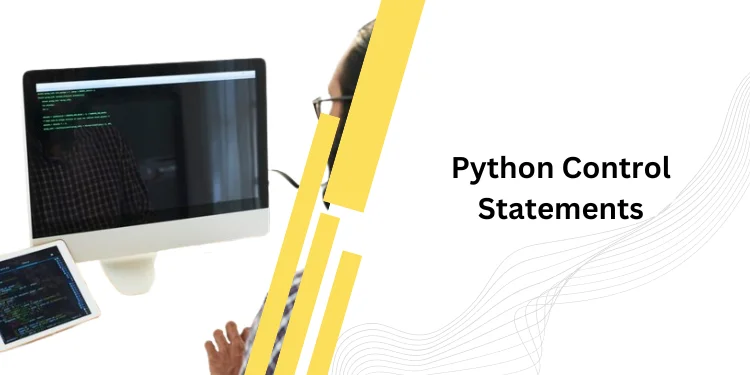Table of Contents
ToggleIntroduction
Before you go to a hacking course, you should know about hacking. Here we discuss that. Hacking identifies and exploits weaknesses in a computer system or network to gain unauthorized access to personal or organizational data. Hacking is not always a malicious activity, but the term has primarily negative connotations due to its association with cybercrime.
What is Hacking?
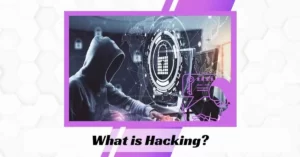
In the Hacking Course, Hacking in cyber security refers to the misuse of devices like computers, smartphones, tablets, and networks to cause damage to or corrupt systems, gather information on users, steal data and documents, or disrupt data-related activity.
A traditional view of hackers is lone rogue programmers highly skilled in coding and modifying computer software and hardware systems. But this narrow view needs to cover the true technical nature of Hacking. Hackers are increasingly becoming sophisticated, using stealthy attack methods designed to go completely unnoticed by cybersecurity software and IT teams. They are also highly skilled in creating attack vectors that trick users into opening malicious attachments or links and freely giving up their sensitive personal data.
Give a visit to the best data science course pune
Types of Hackers
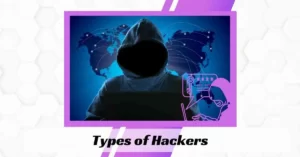
In the Hacking Course, Hackers are classified according to the intent of their actions.
Ethical Hacker (White hat)
A security hacker who gains access to systems intending to fix the identified weaknesses. They may also perform penetration Testing and vulnerability assessments.
In the Hacking Course, White hat hackers can be seen as the “good guys” who attempt to prevent the success of black hat hackers through proactive Hacking. They use their technical skills to break into systems to assess and test the level of network security, also known as ethical Hacking. This helps expose system vulnerabilities before black hat hackers can detect and exploit them.
Also, look at the best data science course chennai
Cracker (Black hat)
In the Hacking Course, A hacker gains unauthorized access to computer systems for personal gain. The intent is usually to steal corporate data, violate privacy rights, transfer funds from bank accounts, etc.
Black hats are the “bad guys” of the Hacking scene. They go out of their way to discover vulnerabilities in computer systems and software to exploit them for financial gain or for more malicious purposes, such as to gain reputation, carry out corporate espionage, or as part of a nation-state Hacking campaign.
These individuals’ actions can seriously damage computer users and the organizations they work for. They can steal sensitive personal information, compromise computer and financial systems, and alter or take down the functionality of websites and critical networks.
Grey hat
In the Hacking Course, A hacker is between ethical and black hat hackers. They break into computer systems without the authority to identify weaknesses and reveal them to the system owner.
Grey hat hackers sit somewhere between the good and the bad guys. Unlike black hat hackers, they attempt to violate standards and principles without intending to do harm or gain financially. Their actions are typically carried out for the common good. For example, they may exploit a vulnerability to raise awareness that it exists, but unlike white hat hackers, they do so publicly.
Devices Most Vulnerable To Hacking
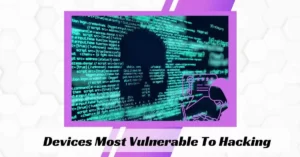
Smart Devices
Intelligent devices, such as smartphones, are lucrative targets for hackers. Android devices, in particular, have a more open-source and inconsistent software development process than Apple devices, which puts them at risk of data theft or corruption. However, hackers are increasingly targeting the millions of devices connected to the Internet of Things.
Webcams
Webcams built into computers is a common hacking target, mainly because hacking them is simple. Hackers typically gain access to a computer using a Remote access Trojan in Rootkit malware, which allows them to not only spy on users but also read their messages, see their browsing activity, take screenshots, and hijack their webcam.
Routers
Hacking routers enable attackers to access data sent and received across them and networks accessed on them. Hackers can also hijack a router to carry out malicious acts such as distributed denial-of-service (DDoS) attacks, domain name system spoofing, or crypto mining.
Email is one of the most common targets of cyber attackers. It is used to spread malware and ransomware and as a tactic for phishing attacks, which enable attackers to target victims with malicious attachments or links.
Suggested Blogs:-
- What is Ethical Hacking & How Does It Work?
- Fastest Supercomputer in India It’s Easy If You Do It Smart
Prevention from Getting Hacked
In the Hacking Course, Organizations and users can follow several key steps and best practices to limit their hacking chances.
Software Update
Hackers are constantly looking for vulnerabilities or holes in security that have not been seen or patched. Therefore, updating software and operating systems is crucial to preventing users and organizations from getting hacked. They must enable automatic updates and ensure the latest software version is permanently installed on all their devices and programs.
Use Unique Passwords for Different Accounts
Weak passwords or account credentials and poor password practices are the most common cause of data breaches and cyberattacks. It is vital to use strong passwords that are difficult for hackers to crack and never use the same password for different accounts. Using unique passwords is crucial to limiting hackers’ effectiveness.
Avoid Clicking on Ads or Strange Links
Advertisements like pop-up ads are also widely used by hackers. When clicked, they lead the user to inadvertently download malware or spyware onto their device. Links should be treated carefully, and unnatural links within email messages or on social media, in particular, should never be clicked. Hackers can use these to install malware on a device or lead users to spoof websites.
What is Cybercrime?
In the Hacking Courses, Cybercrime is using computers and networks to perform illegal activities like spreading computer viruses, online bullying, performing unauthorized electronic fund transfers, etc. Most cybercrime hacks are committed through the internet, and some cybercrimes are performed using mobile phones via SMS and online chatting applications.
< strong>Type of Cybercrime
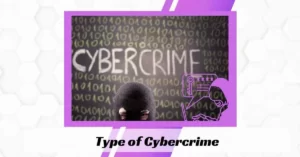
In the Hacking Course, the following list presents common cybercrimes:
- Computer Fraud: Intentional deception for personal gain via computer systems.
- Privacy violation: Exposing personal information such as email addresses, phone numbers, account details, etc., on social media, Hacking websites, etc.
- Identity Theft: Stealing personal information from somebody and impersonating that person.
- Sharing copyrighted files/information involves distributing copyright-protected files such as eBooks, computer programs, etc.
- Electronic funds transfer involves gaining unauthorized access to bank computer networks and making illegal fund transfers.
What is Ethical Hacking?
In the Hacking Course, Ethical Hacking identifies weaknesses in computer systems and networks and develops countermeasures to protect against the flaws. Ethical hackers must abide by the following rules.
- Get permission from the computer system and network owner before hacking.
- Protect the privacy of the organization been hacked.
- Transparently report all the identified weaknesses in the computer system to the organization.
- Inform hardware and software vendors of the identified deficiencies.
The legality of Ethical Hacking
In the Hacking Course, Ethical Hacking is legal if the hacker abides by the rules stipulated in the above section on the definition of Ethical Hacking. The Internation Council of E-Commerce Consultants provides a certification program that tests individual skills. Those who pass the examination are awarded certificates. The certificates are supposed to be renewed after some time.
Why Ethical Hacking?
- Information is one of the most valuable assets of an organization. Keeping information secure can protect an organization’s image and save the organization a lot of money. This can be achieved by taking a proper hacking course.
- Fake Hacking can lead to loss of business for organizations that deal in finance, such as PayPal. Ethical Hacking puts them a step ahead of cyber criminals who would otherwise lead to loss of business.
Hacking Course
Here is some famous Hacking course in India. These Hacking Course are selected from one of the best institutes in India. Give a visit to this hacking course and give a review of how you like this hacking course and whether you will do this hacking course in the future or not.
Institute Name | City | Course Name | Duration | Course Fee |
Hacker School | Hyderabad | Ethical Hacking | 80 hours | Rs.12000 |
Red Team Hacker Academy | Kochi | Ethical Hacking Certification | – | – |
Indian Cyber Security Solutions | Kolkata | Certified Ethical Hacking | 40 hours | Rs.15000 |
Indian School of Hacking | Delhi | Certified Ethical Hacker | 40 hours | Rs.19400 |
Our Blog Education | Mumbai | Certified Ethical Hacker | 30 days | Rs.9990 |
International College for Security Studies | New Delhi | Certified Ethical Hacker v10 | 45 days | – |
Conclusion
Here we discuss the Hacking and Hacking course. Hacking in cyber security refers to the misuse of devices like computers, smartphones, tablets, and networks to cause damage to or corrupt systems, gather information on users, steal data and documents, or disrupt data-related activity.
Ethical Hacking is legal if the hacker abides by the rules stipulated in the above section on the definition of Ethical Hacking. The Internation Council of E-Commerce Consultants provides a certification program that tests individual skills. Those who pass the examination are awarded certificates.
Frequently Asked Questions
Which hacker is most powerful?
Kevin Mitnick holds the title of the world’s most famous hacker ever, dating back to 1995 by the US Department of Justice. Kevin Mitnick started hacking at an early age. He broke into public attention in the 1980s after hacking into the North American Defense Command (NORAD). He was selected as the “most wanted computer criminal in US history” by the US Department of Justice. Mitnick started his hacking career at an early age.
What do hackers study?
Hackers learn to hack by getting an education in cybersecurity, obtaining certifications, and getting jobs that require hacking capabilities. The hacking course gives more information on how hackers know to hack: Get an education in cybersecurity. There are many different paths to starting a career in hacking and cybersecurity.
What do hackers learn first?
An individual planning to become a hacker must learn about programming, which is considered a vital step. A variety of software programs are now available that make hacking easier. However, you must have basic programming knowledge to know how hacking is done. Also, to learn a hacking course prefer any course from above.
Who is the CEO of a white hat hacker?
Since his release from federal prison in 1998, Mitnick has turned his life around and established himself as one of the most sought-after computer security experts worldwide. In The Art of Deception, the world’s most notorious hacker gives new meaning to the adage, “It takes a thief to catch a thief.”
Do the police hire hackers?
Ethical hackers are employed across various industries and government agencies, from big technology and internet companies to law enforcement agencies — and even in the military, where Cyber Command plays an increasingly important role in the nation’s defense.

